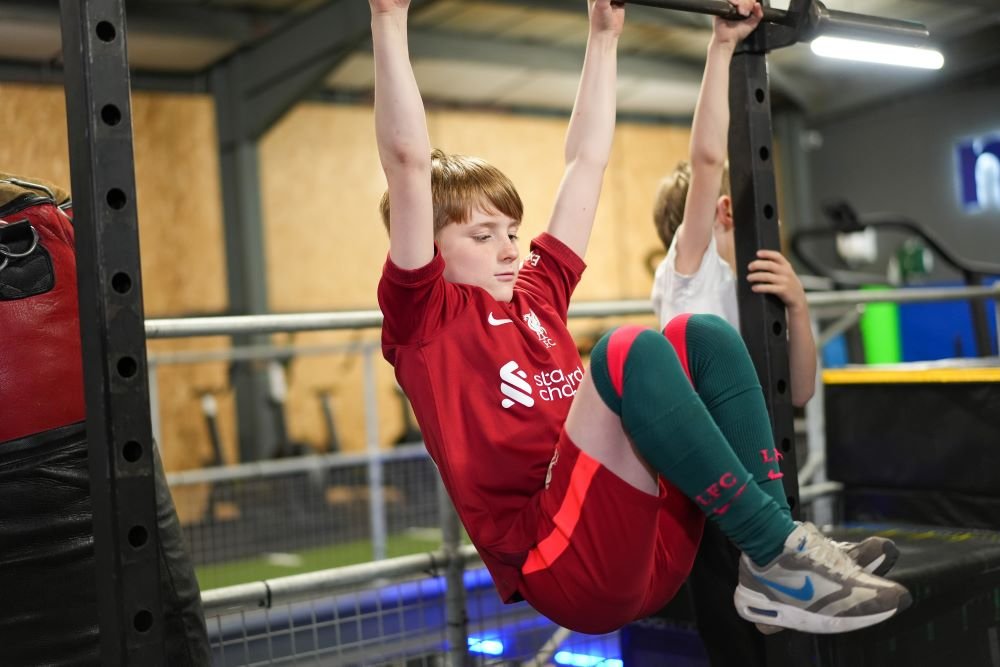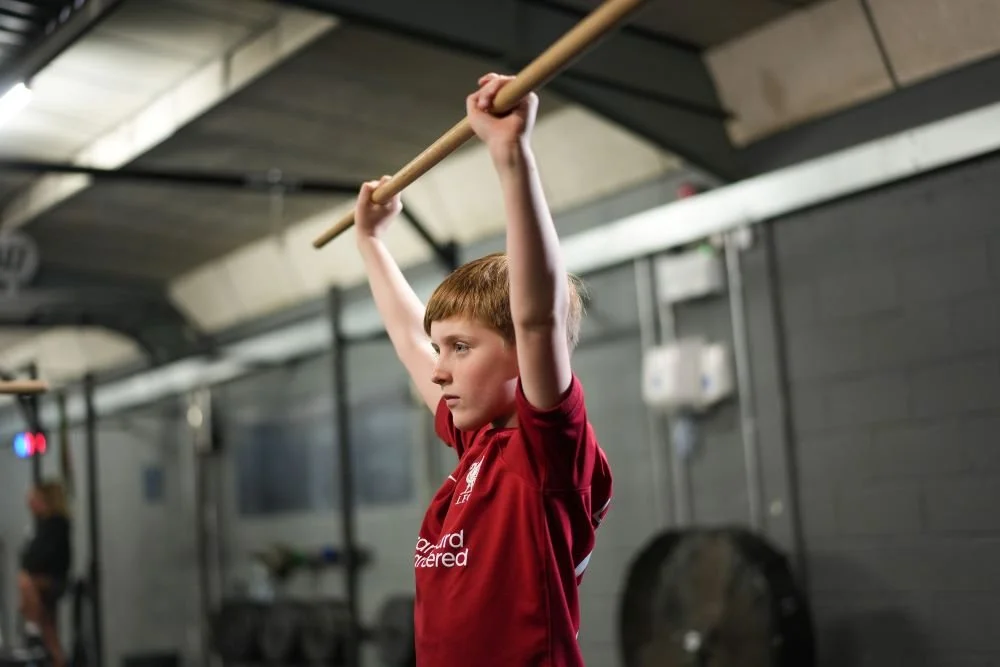
Explorers
Ages 9-11
An introduction to Fitness and movement.
Our Explorers programme exposes the children to as many different movement stimuli as possible, ensuring correct movement patterns are taught whilst giving them the opportunity to explore different movements in fun, inclusive, coaching sessions.
-

Aims
The aims of the Explorer stage is for the group to complete as many different movements and games as possible, constantly learning and exploring different ways of moving but also looking to hone in on some key movements. e.g. squatting and pushing.
On a weekly basis there is structure to the sessions and the aim is progress onto more complex movements as the group progresses from week to week.
-

Learning Objectives
To be able to complete a variety of locomotion tasks that involve the ability to move and change direction. Furthermore, for the children to be able to complete, to a good standard, basic strength exercise movements such as the squat and holding positions.
Children will also be able to show good levels of ability to balance and hold set positions for a sustained period of time.
-

Progressions
Children will progress onto the Pioneer stage once they are at a suitable age and have shown that they can complete a variety of movements set by the coach, this is key so that they are able to meet the requirements for the next stage.
This is all assessed by the coach in charge.
learning and development of the components of fitness.
Every stage of our “Strong Kids” programme is designed to develop each of the components of fitness. However, as the children develop there are certain components that require more focus and attention. See below for a breakdown of this stages main fitness component focuses.
-
Strength, a key fitness component, denotes the ability to produce force against resistance. In the Explorers stage, our emphasis is on instilling a foundational understanding of strength-building exercises and promoting the correct execution of these movements.
In this stage, children will engage with exercises that primarily use their own body weight or light barbells and dumbbells for resistance. Exercises such as the deadlift, squats, presses, pulls, and carries are used. These activities are designed to foster a basic understanding of strength training principles and to develop the muscle groups required for more advanced exercises in later stages.
At this point, it's not about weightlifting in the traditional sense - going heavy and aiming for maximum efforts. Instead, the goal is to prepare the children's bodies and minds for potential weightlifting in the future, with a strong emphasis on safety, form, and control. They'll learn key concepts such as alignment, core stability, and the importance of slow, controlled movements.
The progression from the Adventurers stage signifies a shift from very basic physical activities towards more structured strength exercises. Whereas the Adventurers stage might have introduced children to the joys of movement and active play, the Explorers stage starts to shape these experiences into a more defined understanding of strength and fitness, laying a solid foundation for future fitness growth.
-
Mobility, an essential aspect of fitness, refers to a child's ability to move their body through a full range of motion, involving both flexibility and strength. In the Explorers stage, we aim to nurture this fundamental skill by engaging children in exercises and activities that promote healthy, functional movement.
Children will participate in basic mobility exercises that encourage flexibility, balance, and control. Activities could include gentle stretching exercises, crawls and different movement patterns, or fun mobility games that involve a range of movements like bending, twisting, reaching, and balancing. They might also start practicing the initial stages of weight-bearing exercises, focusing on body alignment and control rather than lifting heavy weights.
Progressing from the Adventurers stage, children in the Explorers stage will take their initial steps into the world of structured exercise. While the Adventurers stage introduces movement in a playful and exploratory way, the Explorers stage starts to refine these movements, focusing on safe and correct form, and fostering an understanding of how our bodies move and function. This stage sets a solid foundation for more advanced mobility work as children progress further into their fitness journey.
-
Change of direction, a fundamental component of fitness, refers to the ability to alter movement direction quickly and efficiently. This skill is particularly important for various sports and physical activities. In the Explorers stage, our objective is to cultivate this ability in children by incorporating specific exercises and activities.
In this stage, children will work on exercises that enhance their agility, balance, and spatial awareness. These may include multi-directional games, zig-zag runs, shuttle runs, or obstacle courses that require quick changes in direction. Though traditional weightlifting techniques aren't typically used to directly develop change of direction skills, fundamental strength exercises, such as squats or lunges, can indirectly improve the ability to change direction by strengthening the legs and core.
The progression from the Adventurers stage represents a transition from rudimentary movement exploration towards more structured and complex exercises. While the Adventurers stage might have introduced children to the fun of movement in a broad sense, the Explorers stage starts to focus on refining these movements and enhancing specific skills, such as changing direction and remaining in control whilst moving quickly. This lays a robust foundation for more advanced agility work as the children advance in their fitness journey.

